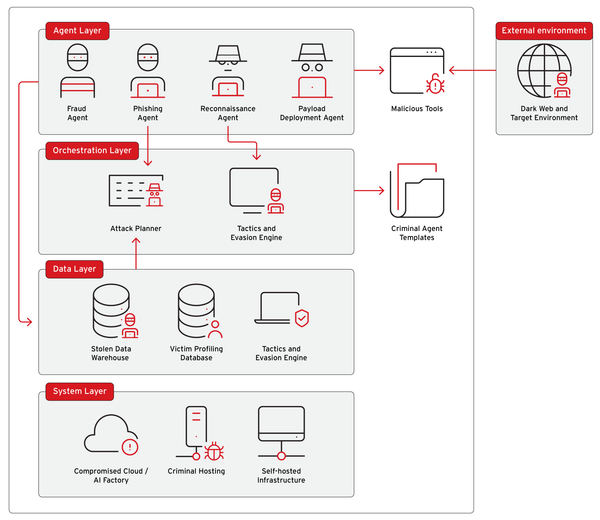Nigeria Scams 2025: Africa's Digital Fraud Capital – Where 419 Scams Evolved Into a Global Cybercrime Empire

Executive Summary
Nigeria stands at a crossroads in 2025, simultaneously serving as both a major source of global cybercrime and one of its most significant victims. The birthplace of the infamous "419 scam" has evolved into a sophisticated cybercrime ecosystem where unemployment drives young people into fraud, spiritual beliefs merge with digital crime, and organized criminal networks like the Black Axe Confraternity coordinate billion-dollar operations across continents. Between January 2023 and April 2025, Nigeria lost over ₦320 billion ($700+ million) to financial fraud domestically, while Nigerian-based scammers extracted an estimated $26 billion annually from victims worldwide through Business Email Compromise (BEC), romance scams, and cryptocurrency fraud. The country ranks 5th globally in cybercrime, experiences an average of 4,388 cyberattacks per week, and loses approximately $500 million annually to fraud. Yet this same nation is pioneering controversial rehabilitation programs, deporting foreign cybercriminals, and attempting to transform its notorious "Yahoo Boys" into legitimate cybersecurity professionals – a bold experiment that could reshape Africa's digital future or backfire spectacularly.
The Scale of Nigeria's Dual Crisis
Nigeria's fraud landscape presents a paradox that few countries can match. The nation is simultaneously:
As Perpetrator:
- Global Ranking: 5th worldwide in cybercrime activity, 3rd according to some indices
- BEC Dominance: Nigerian actors responsible for roughly 50% of global Business Email Compromise attacks
- Annual Export: Estimated $26 billion in global fraud losses traced to Nigerian operations
- Attack Volume: Nigerian organizations wage approximately 92,000 BEC attacks monthly
- International Reach: Operations spanning at least 177 countries across six continents
As Victim:
- Domestic Losses: ₦320 billion ($700+ million) lost between January 2023-April 2025
- Weekly Attacks: Average 4,388 cyberattacks per week against Nigerian organizations (Q1 2025)
- Fraud Incidents: 740,000+ attempted digital fraud incidents in 2023 alone
- Infrastructure Losses: $53.4 billion stolen from financial sector in 2024
- Major Breaches:
- Flutterwave: $6.5 million unauthorized transactions (2023-2024)
- PiggyVest: $2.1 million wallet attack (2024)
- Interswitch: ₦30 billion in fraudulent chargebacks (2023)
- First Bank of Nigeria: ₦40 billion insider fraud (2023)
- OPay: 5,000+ accounts compromised via phishing and SIM swaps (2024-2025)
The Economic Context:
- Inflation: Over 30% annually
- Unemployment: Persistently high, especially among youth
- Digital Adoption: 134.78 million internet users (42.24% broadband penetration)
- Youth Demographics: 40% of undergraduates and 60% of unemployed graduates involved in cybercrime
- Economic Impact: Projected $6 trillion cybercrime cost to Nigeria by 2030
The Evolution of Yahoo Boys: From 419 to Global Networks
The Cultural Phenomenon
"Yahoo Boys" – the colloquial term for Nigerian internet fraudsters – represent more than just criminals. They embody a complex social phenomenon rooted in economic desperation, cultural acceptance, and technological evolution.
The Name's Origin: The term emerged from fraudsters' use of Yahoo email accounts for their scams in the early 2000s, replacing the older "419" moniker (referencing Section 419 of the Nigerian Criminal Code that criminalizes fraud).
Social Acceptance: Unlike in many countries where cybercriminals operate in shadows, Nigerian Yahoo Boys often enjoy social status. Pop culture amplifies this narrative, with social media rife with images of scammers flaunting luxury cars, expensive clothes, and extravagant lifestyles. This glamorization, combined with high unemployment and limited opportunities, makes cybercrime appear as a faster route to wealth than legitimate employment.
University Breeding Grounds: Research shows that 74% of romance fraudsters are university students, with an additional 16% being graduates. The university environment has become a fertile breeding ground for cybercrime, with some institutions hosting underground "cybercrime schools" or "HK" (Hustle Kingdom/"419 training schools") where instructors teach aspiring fraudsters the skills needed to commit online crimes.
Yahoo Plus: When Cybercrime Meets Spirituality
Perhaps the most disturbing evolution in Nigerian cybercrime is "Yahoo Plus" or "Yahoo Plus Plus" – the fusion of traditional internet fraud with occult practices and spiritual rituals.
The Spiritual Dimension: Scammers increasingly incorporate spiritual elements rooted in Nigerian culture into their operations, believing these enhance criminal success. This "cyber-spiritualism" includes:
- Voodoo rituals to protect from detection
- Occult practices using items like used sanitary pads
- Blood rituals and human sacrifice in extreme cases
- Spiritual consultations with traditional priests
Driving Factors: Research identifies several reasons for this spiritual turn:
- EFCC crackdowns increasing pressure on traditional methods
- In-group conflict among Yahoo Boys over social recognition
- Reduced victimization rates as awareness increases
- Delayed success requiring "spiritual intervention"
- Mass media enlightenment campaigns forcing adaptation
The Human Cost: Yahoo Plus Plus has escalated from fraud to violent crime, with documented cases of kidnapping and murder committed for ritual purposes believed to enhance cyber-success. This represents cybercrime's darkest evolution – where digital fraud intersects with physical violence.
Major Scam Types Devastating Nigeria and the World
1. Business Email Compromise (BEC): The Crown Jewel
BEC remains the most financially damaging cybercrime exported from Nigeria, accounting for 40% of global cybercrime losses.





